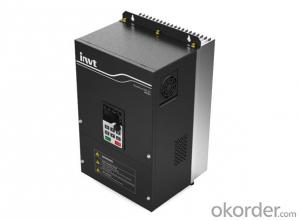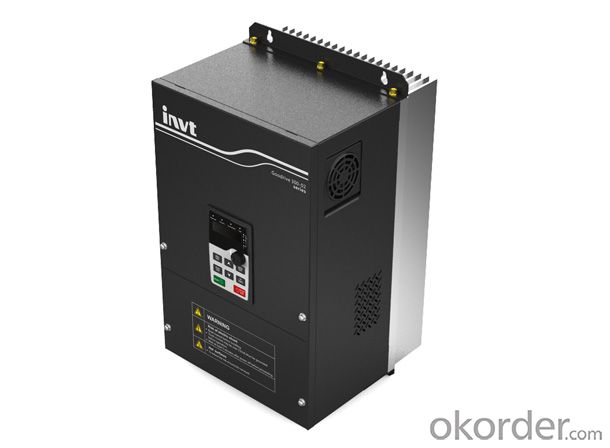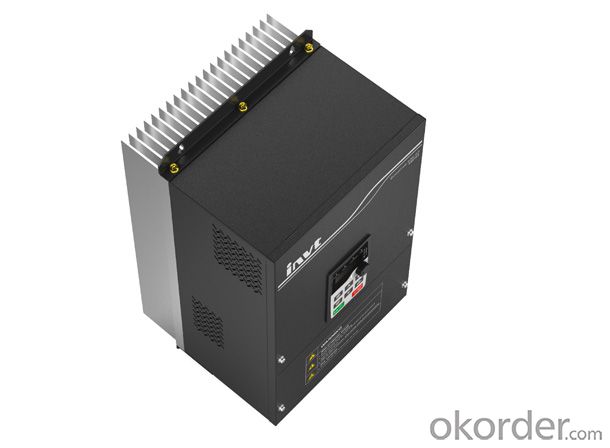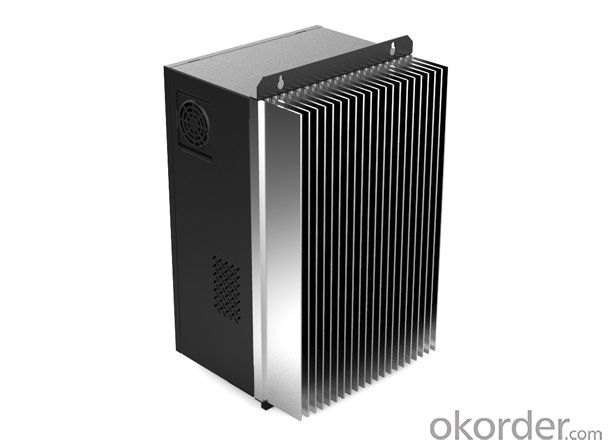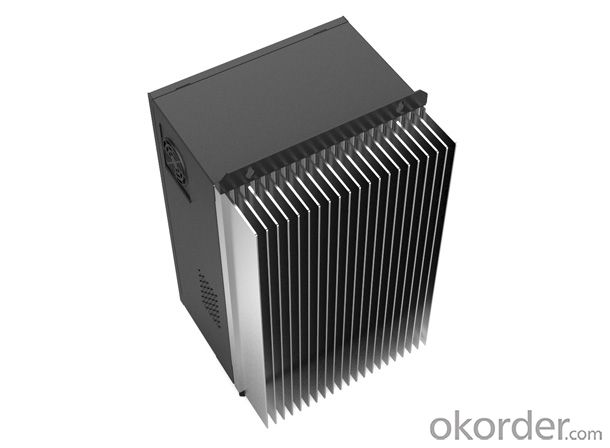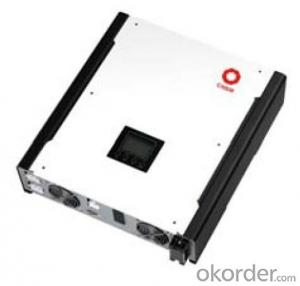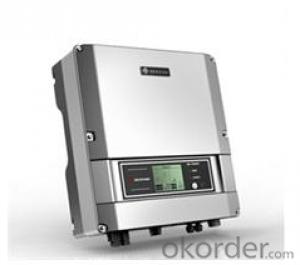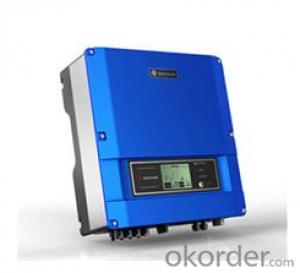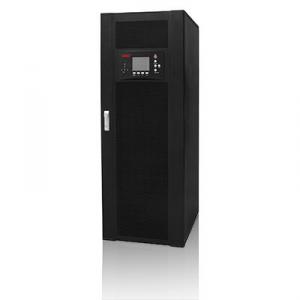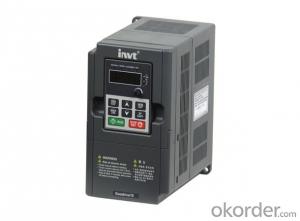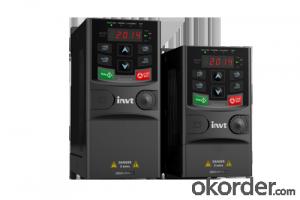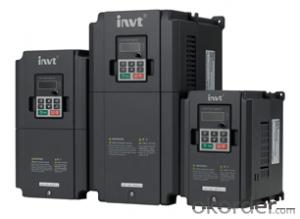Solar Inverter Factory Goodrive200A Inverters with Full Certification
- Loading Port:
- China main port
- Payment Terms:
- TT OR LC
- Min Order Qty:
- 100 pc
- Supply Capability:
- 10000 pc/month
OKorder Service Pledge
OKorder Financial Service
You Might Also Like
Based on DSP control system, Goodrive200A inverters apply V/f vector control and various protections to control asynchronous motors. The air duct, hardware and software have been greatly improved for better environment adaptability, operation and reliable quality certificated by TÜV SÜD.
High performance
1. More Accurate Motor Autotuning;
2. Advanced open loop vector control;
3. Perfect voltage and current control, reducing the fault protection times;
4. Multiple braking modes and instant stopping.
Multi-function with simple operation
1. Separate Air-duct;
2. Multiple installation modes;
3. Optional built-in C3 input filters, optional external C2 filters;
4. Book structure;
5. The rivet design ensures reliable integration connection;
6. Smaller Size;
7. Membrane keypad design (which can be connected to external keypads) is available for inverters (≤15kW); swappable keypads are standard for inverters (≥18.5kW);
8. High Performance Keypad;
9. Embedded braking units of 0.75-30kW inverters, Reduce the occupied space and decrease the cost;
10. Supporting common DC bus;
11. Available on DC power supply;
12. Function of water supply.
Reliable quality certificated
1. The product design follows IEC national standards and passes the CE test certification;
Each Goodrive200A inverter has past the test certification.
2. Advanced thermal technology makes exact thermal design;
3. Wide voltage range meets the requirement of grid environment;
4. Perfect and reliable test system ensure products adapt complicated site environments.
INVT is the only manufacturer achieved ACT certificate of TÜV SÜD .The full name of ACT is Acceptance of Client's Testing, which means the German TÜV SÜD admit the technology level of the lab and accept their separate testing data and test reports officially.
Advantages
High performance, multi-function with simple operation and reliable quality certificated by TÜV SÜD.
Applications
Air compressor, Oil, Warming and water supply, Plastics machine, Mine, Fans and water pumps.
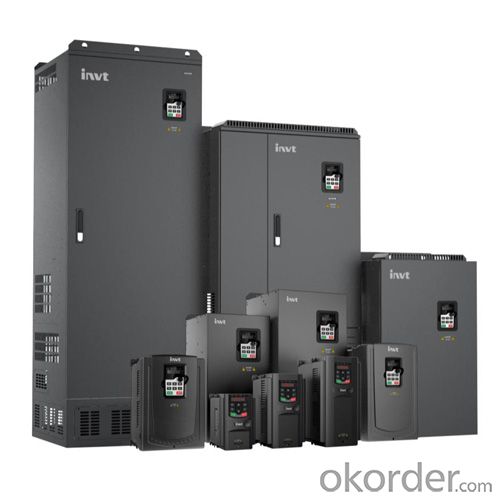
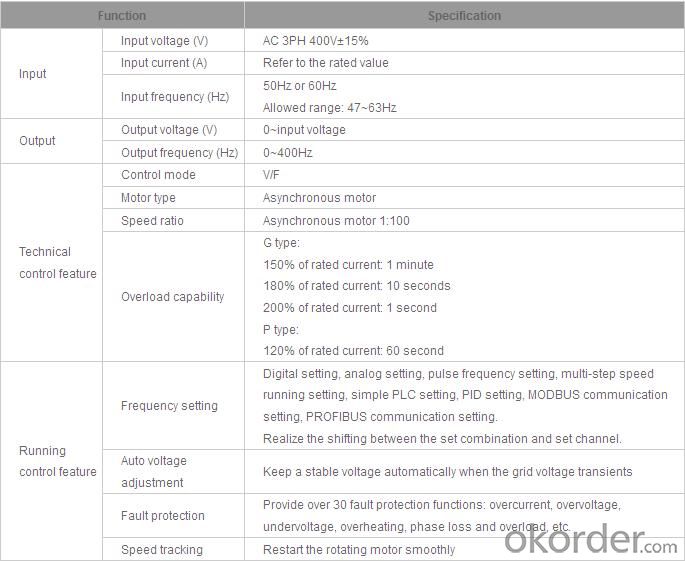
FAQ
Q 1. What’s the payment term?
A. We accept TT,30% deposit and 70% balance against copy of BL
Q 2. How’s the delivery time?
A. usually it will take about 25 days for production
Q 3. Tell me the standard of package?
A. For the small capacity, it use carton, but for big capacity, we will use strong wooden case for protection.
- Q: What is the role of a bypass switch in a solar inverter?
- The role of a bypass switch in a solar inverter is to provide a backup mechanism that allows the system to switch to the grid power in case of any issues or failures with the solar power generation. This ensures a continuous supply of electricity to the connected loads, even when the solar panels are not generating enough power or are experiencing problems.
- Q: Can a solar inverter be used in harsh environmental conditions?
- A solar inverter is capable of operating in harsh environmental conditions. It can withstand a wide range of environmental factors, including extreme temperatures, humidity, dust, and vibrations. Manufacturers often construct solar inverters using durable materials and apply protective coatings to shield them from severe weather conditions. Furthermore, many solar inverters are equipped with advanced cooling mechanisms to prevent overheating in hot climates. Nevertheless, it is crucial to consider that the durability and performance of a solar inverter in harsh conditions may differ depending on the brand and model. To guarantee optimal performance and longevity, it is advised to select a reliable and high-quality solar inverter specifically designed for use in harsh environmental conditions.
- Q: What certifications should I look for when choosing a solar inverter?
- When choosing a solar inverter, it is important to look for certifications such as UL listing, IEC 61727 compliance, and IEEE 1547 compliance. These certifications ensure that the inverter meets safety and performance standards, and is compatible with grid connection requirements.
- Q: What is the role of a solar inverter in preventing underperformance?
- The role of a solar inverter in preventing underperformance is to convert the direct current (DC) electricity produced by the solar panels into alternating current (AC) electricity that can be used to power household appliances and be fed into the grid. The inverter also monitors the performance of the solar system, ensuring that it operates at maximum efficiency and identifying any issues or underperformance. By constantly optimizing the energy production and detecting any problems, the solar inverter plays a crucial role in preventing underperformance and maximizing the overall output of the solar power system.
- Q: Can a solar inverter be used with a smart home system?
- Yes, a solar inverter can be used with a smart home system. In fact, integrating a solar inverter with a smart home system allows for better monitoring, control, and optimization of the solar energy production and consumption in the home. This integration enables homeowners to track their energy usage, maximize self-consumption, and even automate certain appliances or systems based on the availability of solar power.
- Q: What is the role of a solar inverter in reactive power control?
- The role of a solar inverter in reactive power control is to regulate and manage the flow of reactive power in a solar power system. It helps to maintain the power factor within an acceptable range, ensuring efficient and stable operation of the system. By adjusting the voltage and reactive power outputs, the solar inverter can compensate for any reactive power imbalances and maintain a balanced grid voltage. This helps to prevent power quality issues and ensures optimal performance and integration of solar energy into the grid.
- Q: What are the common issues and troubleshooting steps for a solar inverter?
- Some common issues with solar inverters include no power output, low power output, display or communication errors, and overheating. Troubleshooting steps for these issues may involve checking the input voltage and connections, inspecting the DC and AC cables for damage, resetting the inverter, updating firmware or software, ensuring proper ventilation and cooling, and contacting technical support if necessary.
- Q: What is the role of a voltage control unit in a solar inverter?
- The role of a voltage control unit in a solar inverter is to regulate and stabilize the voltage of the direct current (DC) power generated by the solar panels before it is converted into alternating current (AC) power. It ensures that the voltage remains within the desired range to optimize the efficiency and performance of the solar inverter, as well as protect the connected appliances or grid from potential damage due to voltage fluctuations.
- Q: What is the role of fault ride-through capability in a solar inverter?
- The role of fault ride-through capability in a solar inverter is to ensure the uninterrupted operation of the inverter during grid faults or disturbances. It allows the inverter to remain connected to the grid and continue generating power, even in the presence of temporary voltage dips or interruptions. This capability is essential for grid stability and reliability, as it helps prevent power outages and disruptions in the event of faults in the grid.
- Q: Can a solar inverter be used in extreme weather conditions?
- Yes, solar inverters are designed to withstand extreme weather conditions. They are typically built with durable materials and undergo rigorous testing to ensure they can operate in extreme temperatures, high humidity, and even harsh weather conditions such as heavy rain or snow. However, it is always recommended to consult the manufacturer's guidelines and take necessary precautions to protect the inverter during extreme weather events.
Send your message to us
Solar Inverter Factory Goodrive200A Inverters with Full Certification
- Loading Port:
- China main port
- Payment Terms:
- TT OR LC
- Min Order Qty:
- 100 pc
- Supply Capability:
- 10000 pc/month
OKorder Service Pledge
OKorder Financial Service
Similar products
Hot products
Hot Searches
Related keywords
